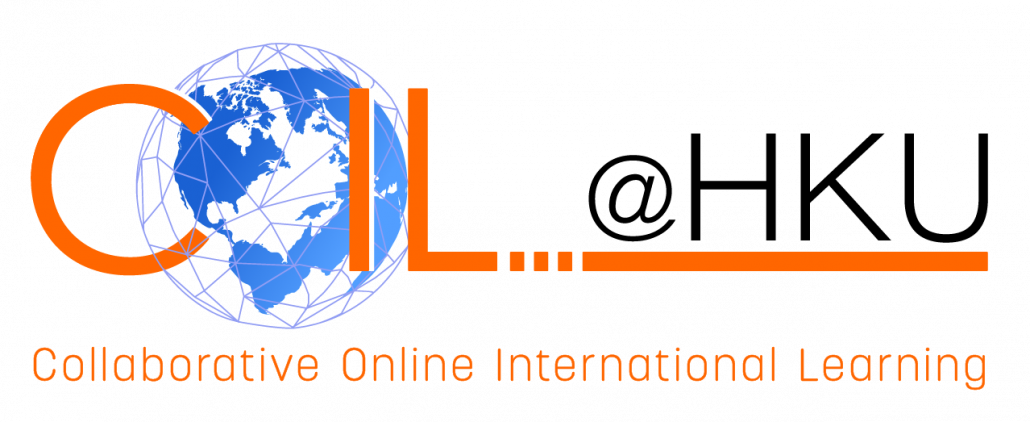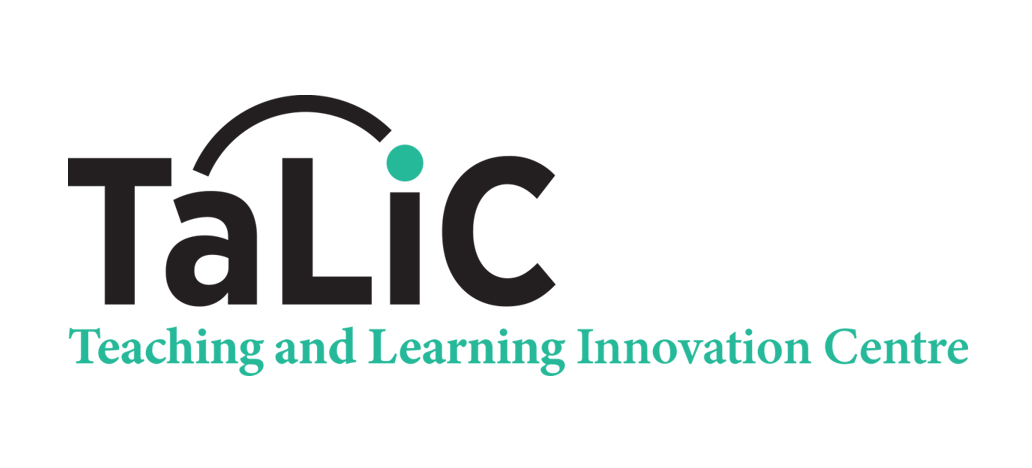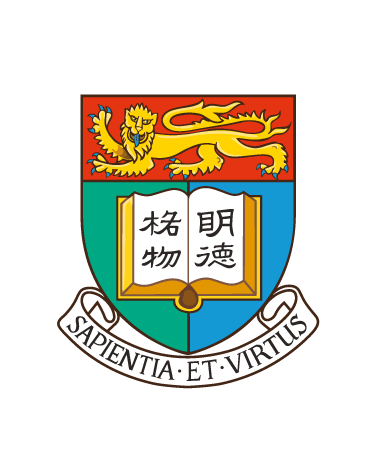HKU Case Studies
International and comparative study of student well-being across Hong Kong and Australia
International and comparative study of student well-being across Hong Kong and Australia
School of Education, University of Queensland (UQ)
The co-curricular project between HKU Common Core and UQ School of Education started as a 6-week virtual international exchange for students to explore well-being and coping with stress through multimodal art, story, and film. Supported by the Gallant Ho Experiential Fund, the students undertake experiential activities to identify and relate concepts of student well-being to their own lives.
Distinctive features
- Light-touch authentic experience requiring only 25 hours of total time
- Auto-ethnographic research by reflecting on the well-being practices of self and peers across intercultural contexts
- Experiment with multimodal experiential approaches such as object-based learning and digital storytelling
Intended Learning Outcomes (ILO):
- Ability to compare and analyse student well-being practices across two different contexts
- Capacity to generate creative digital outputs through individual reflection and group collaboration
Zoom, Mentimeter, Padlet, Miro
Schedule
| Week 1 | Induction with HKU students: Expectations, local teambuilding exercises, Q&A, Homework: Post self-introductions (Padlet) |
| Week 2 | Introductory Session between HKU & UQ teachers and students: Expectations, icebreakers (Miro), cross-cultural teambuilding exercises, instructions for assignments. Homework – A 1-minute “Day in the Life” video (Padlet), complete well-being instrument questionnaires on Qualtrics (Positive and Negative Affect Schedule, Brief Multidimensional Students’ Life Satisfaction Scale, Questionnaire for Eudaimonic Well-Being) |
| Week 3 | Storytelling Session with Australian indigenous academic Dr Marnee Shay. Debrief of well-being instruments and key concepts of well-being |
| Week 4 | Art and Object-Based Learning Workshop (with UQ Art Museum and Dr Florian Knothe at the HKU University Museum and Art Gallery) |
| Week 5 | Students work collaboratively in groups on a 5-minute digital story |
| Week 6 | Final presentation of digital story output to all students and teachers |
Insights for T&L
- The importance of embedding of the COIL progressions throughout the curriculum: (i) Icebreaking, teambuilding, trust development; (ii) Comparative discussions and Organising teams; (iii) Collaborative project work and problem solving; (v) Presentation and Reflection
- The intentional design of socialisation within the curriculum among the local and international students to promotes performance, competency, and community. However, grouping students together is not enough.
- Broadening of research imaginations for undergraduate students via multimodal experiential learning activities, for example, using objects, art, and digital storytelling to conduct research
- Thinking about how COIL can enable the building of trans-global/ -cultural research capacities
Global Consultants: Policymaking For Social Impact
Global Consultants: Policymaking For Social Impact
Liberal Arts and Natural Sciences (LANs) University of Birmingham (UoB)
The Common Core facilitated an undergraduate policy consultancy as a co-curricular programme in collaboration with the UoB in the UK, from 21 March to 30 April 2022 (6 weeks). Student teams from UoB’s LANS From Research To Policy II course formulated a policy for a social issue important to the Birmingham area, which involved conducting a research process–articulating a problem, ideating a solution, devising a methodology, collecting data, and analysis, discussion and presentation.
HKU undergraduate students provided in-depth feedback for the UoB student projects about how their projects might be enhanced by additional perspectives from Hong Kong and Asia. As part of this work, HKU students were introduced to social policy analysis, practice applying basic analytical frameworks to case studies, writing a consulting report, and running consulting meetings. HKU students delivered a consulting report and held consulting meetings to help UoB students draft their policy white papers.
Distinctive features
- Different curriculum and learning outcomes for students from each institution
- Flipped classroom design and peer-to-peer learning model
Intended Learning Outcomes (ILO):
- Apply consulting skills to real-impact social policy scenarios
- Collaborate with HKU peers to research how specific social problems and solutions are shaped by different social, political, economic, and cultural configurations
Zoom, Miro, GoogleDocs
Schedule:
| Week 1 | Introduction Expectations, icebreaking and teambuilding exercises with the HKU cohort, discussion of the UoB intended social policies, defining and exploring the problem, organising the groups |
| Week 2 | Contextualising the issue Explore the social issues from UK, HK and international context. |
| Week 3 | Research methods Analyse the proposed research methods and discussion on writing the consulting report |
| Week 4 | Policy template analysis Examine different types of ‘white paper’ social policy templates and how they are written |
| Week 5 | Consulting Meetings Communication skills workshop on how to run a consulting meeting |
| Week 6 | Submission of consulting report and undertake the consulting meetings with the UoB students to give feedback |
Students were required to invest at least 21 hours of total work. The project was coordinated by Dr Jack Tsao and co-taught by Dr Jack Tsao and Dr Micheal Rivera.
Insights for T&L:
- COIL partnerships can operate independently with limited contact between the students from both institutions but still leverage each side to drive learning
- Minor adjustment to existing courses required to collaborate in COIL partnerships
- Enables the introduction of different international contexts to provide fresh perspectives to existing knowledge domains
Spanish-speaking-Asian Business Project
Collaborating Partner
The University of Hong Kong, School of Modern Languages and Cultures, Spanish Programme and Universidad ICESI, Cali, Colombia
Programme Description
This is a collaborative project aimed at designing a Sino-Hispanic project in Spanish. It can be a business project, an educational project, or a non-for-profit NGO project. Students need to propose an idea for such a project based on the current socio-economic conjunctures of the areas studied with the guidance of the teachers. During the elaboration of this project, students must take into account the existing trend in trade between the business communities of the regions studied, as well as the diplomatic relations between them. They should also show some understanding of well-known administrative procedures that are typically required in order to carry out similar projects. This knowledge can be based on information published on websites, in the press, and on scholarly publications that are accessible to the general public.
Objectives
At the end of this exercise, students will
- Acquire some knowledge about trade and international relations between China and a Spanish-speaking country in a collaborative manner, with teachers and classmates based in China and Colombia
- Develop a capacity to work in (multicultural) teams
- Develop their intercultural competence
- Improve their capacity to present an academic project
- Improve their spoken and written Spanish for professional purposes
- Learn how to manage their time in global teams
- Become aware of the benefits of adopting a global perspective to the design and implementation of bilateral or global projects.
Task Dynamics
- Teachers and students introduce themselves via a video uploaded to Flip.
- All meet in hybrid mode to know each other better and explain the task.
- The teachers form pairs or groups of three students.
- As for the student project, first, each group proposes a project. Students need to carry out a market research, gather resources on international relations or administrative procedures that are relevant to the proposed project (Does a similar project exist already? How many customers or users do you expect to attract? What are the risk factors that could prevent this project from becoming successful?, etc.) In this phase, the interaction among the members of each group is spoken (in Spanish), and they also exchange articles and notes.
- Secondly, once the teachers review the project, students prepare an academic poster following the course guidelines. The poster must contain details such as a project title, clear objectives, a timeline for the project’s development, and a description of the geographical areas where the project will be developed, the human resources needed, the projected investment, and the bibliography that informs the project. Each student will submit the poster to his/her teacher (i.e. ICESI students will submit their poster at ICESI and HKU students will do the same at HKU). The poster submitted by both members of a group must be the same. Each of the teachers will provide feedback and students will then discuss the feedback with their peers. The assessment criteria for the poster is below*. The poster weighs 10% of the course grade.
- Thirdly: Students take the teacher’s feedback into account and continue developing their ideas. They record a 6-minute (for a pair) or slightly longer (for a group of three students) video in which they describe their final project. Students must record their presentations synchronously in a single video. They must not record each intervention separately and then edit the video. The poster will serve as their supporting document so there is no need to create another document for the presentation. The posters can be briefly projected in the meeting but avoid sharing them continuously as the focus must be on the presenters. In the video, students can pretend to be at a conference explaining their project to the audience who has shown an interest in it. They may anticipate questions and try to persuade the audience that theirs is the best project. Relative course weight: 15%. Assessment criteria for the video presentation**.
- Respect copyright laws and avoid plagiarism.
- On Moodle, you may attach a reference list if you are not able to fit your bibliography in the poster.
Some guidelines on how to create a poster
https://www.youtube.com/watch?v=J6n8VFs9WYE
https://www.youtube.com/watch?v=ajLX38p5uL8
https://www.elbichologo.com/guia-poster-congreso/
Peer Review for HKU students
Additionally, you may provide feedback on your classmates’ projects and presentations through a discussion forum on Moodle. This is yet another opportunity to improve your course participation grade. Please check pages 122 and 127 of your textbook for ideas on how to provide a useful and constructive critique, and the table at the end of this document.
ASSESSMENT CRITERIA
* Assessment Criteria for the Academic Poster
- Degree of adequacy to the task proposed
- Degree of Sino-Hispanic integration and demonstration of a global and an intercultural awareness
- Clear and attractive presentation
- Academic depth (reliability, use of updated data, depth)
- Variety of factors taken into account
- Quality of the references used
- Linguistic correction
** Assessment Criteria for the Video
| CONTENT Degree to which the presentation is adequate for the task, the complexity of the project and the depth of knowledge and intercultural competence exhibited. |
| COMMUNICATION Clarity, attention to the viewer as evidenced in gestures, attention, use of questions, structuring devices, anticipation of doubts, explanation of terms or background knowledge that might be difficult to understand by the general public. Use of adequate register (formal/informal/semiformal). |
| VARIETY Variety in the use of vocabulary and sentence structures. Richness of expressive devices. |
| CORRECTION Level of linguistic correction at a B1 level of the Common European Framework of Reference for Languages. |
Spanish for Business and Intercultural Communication
Programme Description
This is a Spanish for Specific Purposes course which aims at preparing students to effectively interact with Spanish-speaking companies and institutions. It is a CLIL (Content and Language Integrated Learning) course which combines the learning of specific linguistic skills (reading, writing, listening and speaking) at a B1 level with the study of cultural and socio-economic aspects that are relevant for the development of commercial and intercultural relations between Spanish-speaking and East-Asian countries. Topics discussed in this course include trade negotiations, etiquette, banking transactions, product promotion and publicity, commercial fairs, the current state of relations between Spanish-speaking and East-Asian governments and organizations, and opportunities for the promotion of business partnerships between companies in East Asia and the Spanish-speaking world. Guest speakers from Spanish-speaking institutions and companies located in Hong Kong are invited to the classes.
Course Learning Objectives (summary)
- Demonstrate a capacity to communicate effectively in a business environment using the Spanish language for trading (reading, writing, listening and speaking)
- Demonstrate the ability to transact banking business in written and oral Spanish
- Demonstrate the ability to promote products and companies in Spanish
- Demonstrate the ability to use intercultural competence and the knowledge of the relations between Chinese and Spanish-speaking communities to facilitate the communication between them in professional environments.
Textbook and Other Resources
Socios y colegas 2 (nueva edición), from Campus Difusión Premium
Assessment
Continuous assessment. These are the main tasks:
| Weight | |
| Listening Comprehension Tasks (2) | 20% (10% each) |
| Reading & Writing Tasks (3) | 15% (5% each) |
| Various Grammar and Vocabulary Tasks | 15% |
| Presentation and Speaking Interaction Skills (3 tasks) | 15% (5% each) |
| Spoken and Written Participation in Regular Classes | 10% |
| Business or Cultural Project, Asia-Latin America/Spain | 25% (10% preparation, 15% final) |
| Total | 100% |
International and comparative study of student well-being across Hong Kong and Australia
School of Education, University of Queensland (UQ)
The co-curricular project between HKU Common Core and UQ School of Education started as a 6-week virtual international exchange for students to explore well-being and coping with stress through multimodal art, story, and film. Supported by the Gallant Ho Experiential Fund, the students undertake experiential activities to identify and relate concepts of student well-being to their own lives.
- Light-touch authentic experience requiring only 25 hours of total time
- Auto-ethnographic research by reflecting on the well-being practices of self and peers across intercultural contexts
- Experiment with multimodal experiential approaches such as object-based learning and digital storytelling
- Ability to compare and analyse student well-being practices across two different contexts
- Capacity to generate creative digital outputs through individual reflection and group collaboration
Zoom, Mentimeter, Padlet, Miro
| Week 1 | Induction with HKU students: Expectations, local teambuilding exercises, Q&A, Homework: Post self-introductions (Padlet) |
| Week 2 | Introductory Session between HKU & UQ teachers and students: Expectations, icebreakers (Miro), cross-cultural teambuilding exercises, instructions for assignments. Homework – A 1-minute “Day in the Life” video (Padlet), complete well-being instrument questionnaires on Qualtrics (Positive and Negative Affect Schedule, Brief Multidimensional Students’ Life Satisfaction Scale, Questionnaire for Eudaimonic Well-Being) |
| Week 3 | Storytelling Session with Australian indigenous academic Dr Marnee Shay. Debrief of well-being instruments and key concepts of well-being |
| Week 4 | Art and Object-Based Learning Workshop (with UQ Art Museum and Dr Florian Knothe at the HKU University Museum and Art Gallery) |
| Week 5 | Students work collaboratively in groups on a 5-minute digital story |
| Week 6 | Final presentation of digital story output to all students and teachers |
- The importance of embedding of the COIL progressions throughout the curriculum: (i) Icebreaking, teambuilding, trust development; (ii) Comparative discussions and Organising teams; (iii) Collaborative project work and problem solving; (v) Presentation and Reflection
- The intentional design of socialisation within the curriculum among the local and international students to promotes performance, competency, and community. However, grouping students together is not enough.
- Broadening of research imaginations for undergraduate students via multimodal experiential learning activities, for example, using objects, art, and digital storytelling to conduct research
- Thinking about how COIL can enable the building of trans-global/ -cultural research capacities


